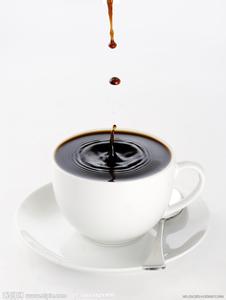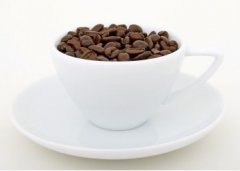The excitement and crying of the child comes from the mother drinking coffee and tea?

The child's eczema is gradually getting better, but these two days the child's sleep time is still very short, and it is difficult to fall asleep, always in a state of excitement. Xiao Wang said that from 1: 00 to 5: 00 last night, the child did not sleep, was in good spirits, did not cry, looked around, and sometimes trembled with laughter. He began to cry after 5 o'clock. He obviously felt that he was very sleepy, but it was difficult for him to fall asleep.
What on earth caused the child to be so excited?
I calculated the child's sleep time in these two days, with an average of only 12 hours a day. The environment around the home is quiet and sleep will not be affected by hunger or the stimulation of diapers. Is it eczema? Eczema has basically subsided because children apply Yumijing children's cream 2 or 3 times a day. Today, I saw my daughter drinking coffee with a cup. I suddenly realized that the child didn't sleep well and that crying might have something to do with my daughter's drinking coffee and tea.
Lactating mothers are not supposed to drink coffee and tea. Because coffee and tea contain caffeine, and tea also contains theophylline, which can excite the nervous system, stimulate the cerebral cortex, cause mental tension, eliminate drowsiness and make people overexcited. These substances can be transmitted to children through breast milk, so coffee and tea, which may not have any effect on adults, are exciting irritants for young babies. In addition, the tannic acid contained in tea, whether for pregnant women or newborns, will prevent the absorption of iron in the body, making the body lack of raw materials for hematopoiesis, which can cause maternal anemia for a long time, and there is not much endogenous iron for small infants. Therefore, iron deficiency anemia is more likely to occur. And after tannic acid is absorbed through the gastrointestinal tract, it will inhibit the secretion of milk, which is even more inappropriate for the daughter who has very little milk. According to relevant reports, when drinking coffee during lactation, caffeine can enter the baby's body through breast milk, causing the baby to have intestinal spasms and suddenly cry for no reason. Caffeine can also destroy B vitamins in the body. Of course, the tolerance of caffeine varies from person to person, but it may have a greater effect on young babies.
So I don't allow my daughter to drink any more coffee and tea. Drinking boiled water is better than anything else!
Attached: dietary guidelines for lactating mothers
(1) increase the intake of fish, poultry, eggs, lean meat and seafood.
The total amount of animal protein or soy food should be increased by 100g to 150g every day to supplement high-quality protein; eat more food containing iron to prevent and correct iron deficiency anemia; eat more seafood, which is beneficial to the growth and development of babies.
(2) drink more milk and more soup.
Drinking 500 ml of milk a day can increase 600 mg of high-quality calcium, avoid osteomalacia, and properly supplement micronutrients.
(3) the food is varied, but not excessive.
A variety of food is conducive to a balanced diet without special taboos. Prevent excessive protein and fat, pay attention to the intake of vegetables and fruits, in order to benefit the health of nursing mothers, and ensure the quality and quantity of milk to facilitate continuous breastfeeding.
(4) avoid tobacco and alcohol, and avoid drinking strong tea and coffee, so as to avoid harming the health of babies.
(5) Scientific exercise and exercise to maintain a healthy body weight are beneficial to the recovery of parturient and reduce the occurrence of postpartum complications.
Extracted from the Dietary guidelines for Chinese residents issued by the Ministry of Health in 2007
Important Notice :
前街咖啡 FrontStreet Coffee has moved to new addredd:
FrontStreet Coffee Address: 315,Donghua East Road,GuangZhou
Tel:020 38364473
- Prev

Six questions related to coffee can coffee suppress sexual impulses?
Can coffee suppress sexual impulses? in the early 17th century, when Europeans began to experiment with coffee, it was a popular idea in Britain that coffee could suppress sexual impulses, drink too much and even lose sexual ability, and it was a favorite drink for abstinent monks. Under this concept, it is worth noting that the first cafe in London was able to open around 1688. Relative to
- Next

Four cups of coffee a day can reduce women's risk of depression
Coffee is good for you: Women who drink four or more cups a day are less likely to be depressed coffee is good for you: four cups of coffee a day can reduce the risk of depression in women, Many of us depend on a mug of freshly brewed coffee to perk us up in the mornings. A lot of people every day
Related
- Beginners will see the "Coffee pull flower" guide!
- What is the difference between ice blog purified milk and ordinary milk coffee?
- Why is the Philippines the largest producer of crops in Liberia?
- For coffee extraction, should the fine powder be retained?
- How does extracted espresso fill pressed powder? How much strength does it take to press the powder?
- How to make jasmine cold extract coffee? Is the jasmine + latte good?
- Will this little toy really make the coffee taste better? How does Lily Drip affect coffee extraction?
- Will the action of slapping the filter cup also affect coffee extraction?
- What's the difference between powder-to-water ratio and powder-to-liquid ratio?
- What is the Ethiopian local species? What does it have to do with Heirloom native species?

